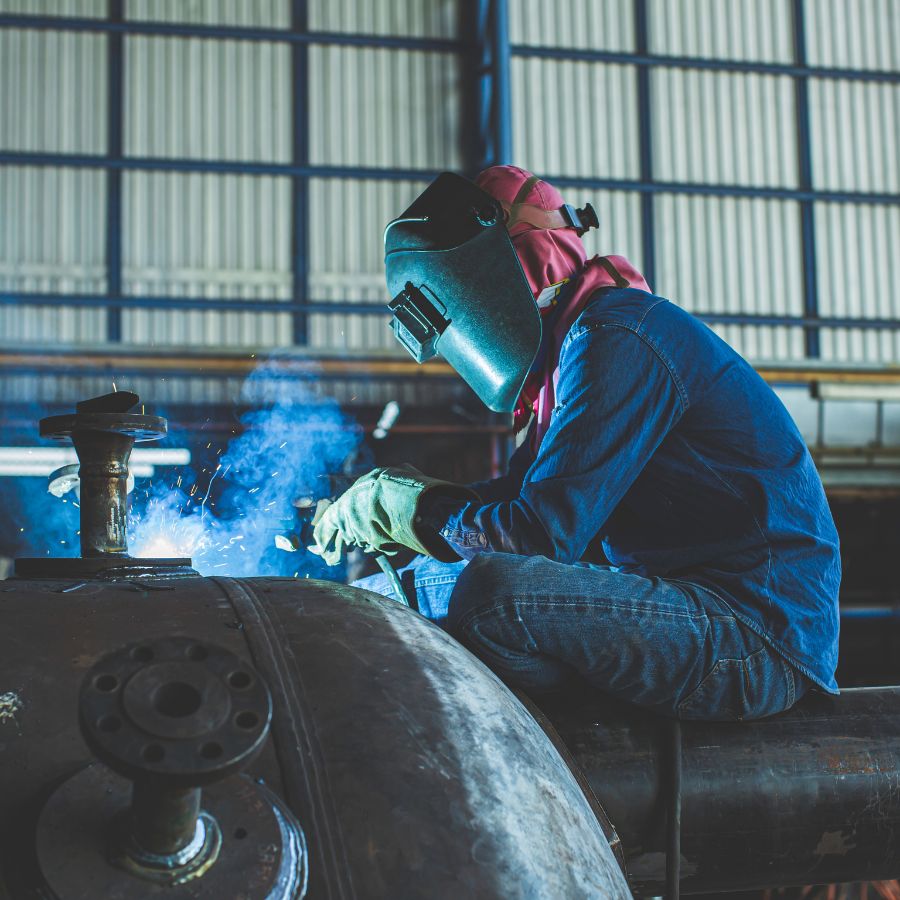Steel fabrication is the backbone of Melbourne’s infrastructure boom. From the towering skyscrapers along Collins Street to large-scale bridges, factories, and residential complexes, steel is everywhere—and with good reason. It provides strength, durability, and flexibility that few other materials can match. But when it comes to steel fabrication, the question isn’t just about strength—it’s about compliance.
Do steel fabricators in Melbourne meet Australian Standards and compliance requirements? This question is crucial for homeowners, builders, engineers, and business owners. After all, non-compliant steel work can lead to safety hazards, costly project delays, and even legal troubles.
In this article, we’ll dive deep into Australian steel standards, Melbourne’s fabrication industry, compliance requirements, risks of working with non-compliant fabricators, and how to make sure you’re choosing the right partner for your project.
1. Understanding Australian Steel Standards
What Are Australian Steel Standards?
Australia has one of the world’s most robust frameworks for steel quality and safety. These standards, often developed by Standards Australia, ensure that all steel products and fabrication processes meet strict safety, durability, and performance benchmarks.
Some of the most important steel-related standards include:
- AS/NZS 3679 – Covers structural steel hot-rolled bars and sections.
- AS 4100 – Steel structures, ensuring design and fabrication safety.
- AS/NZS 1554 – Welding of steel structures.
- AS/NZS 5131 – Fabrication and erection of steelwork.
Why Standards Are Critical in Steel Fabrication
Standards aren’t just paperwork—they save lives. Non-compliant steel fabrication can result in:
- Structural collapses in bridges and buildings.
- Welding cracks that compromise safety.
- Long-term durability issues in harsh weather conditions.
For Melbourne, a city with rapid urban growth and diverse industries, compliance ensures that everything from high-rise buildings to mining equipment functions safely.
2. Steel Fabrication in Melbourne: Industry Overview
Melbourne’s Growing Construction and Manufacturing Demand
Melbourne is one of Australia’s fastest-growing cities, and with expansion comes construction. Steel fabricators play a vital role in:
- High-rise developments in the CBD.
- Expanding transportation networks like bridges and rail infrastructure.
- Large industrial projects in mining and manufacturing.
Typical Services Offered by Steel Fabricators in Melbourne
Steel fabricators in Melbourne provide a wide range of services, including:
- Custom steel cutting and shaping – Tailored to project needs.
- Welding and assembly – Joining steel pieces according to design.
- Structural steel fabrication – Used in commercial and residential construction.
- Heavy industrial fabrication – Supplying steel for mining, automotive, and machinery.
These services require precision, expertise, and adherence to Australian standards to ensure safety and reliability.
3. Compliance Framework for Steel Fabricators in Melbourne
The Role of Standards Australia and Relevant Authorities
Standards Australia is the country’s peak standards body, developing guidelines for steel fabrication. Other organizations include:
- Australian Steel Institute (ASI) – Industry advocacy and education.
- WorkSafe Victoria – Regulates safety in fabrication workshops.
Common Compliance Certifications in Melbourne
Reputable Melbourne steel fabricators often hold certifications such as:
- ISO 9001 – Quality management systems.
- ACRS (Australasian Certification Authority for Reinforcing and Structural Steels) – Ensures compliance with Australian standards.
- Welding certifications (AS/NZS 1554) – Mandatory for structural safety.
Inspections and Testing Protocols
To prove compliance, fabricators undergo rigorous testing, including:
- Non-destructive testing (NDT) – Detects cracks without damaging steel.
- Ultrasonic testing – Measures internal flaws.
- Radiographic testing – Ensures weld quality.
- Third-party audits – Independent verification of compliance.
4. Do Melbourne’s Steel Fabricators Meet These Standards?
Large vs. Small Fabricators: Who Ensures Compliance Better?
- Large fabricators: Typically invest in certifications, quality control teams, and cutting-edge machinery.
- Smaller workshops: May lack the resources for full certification but can still deliver compliant work if properly audited.
Real-World Compliance Records
- Many large infrastructure projects in Melbourne—such as West Gate Tunnel and Metro Tunnel—are supported by certified steel fabricators.
- Some smaller, low-cost providers have faced compliance issues, resulting in project delays or rework.
Risks of Choosing Non-Compliant Fabricators
Hiring a fabricator who ignores standards can lead to:
- Safety hazards such as collapsed beams.
- Expensive project delays when steel fails inspections.
- Legal disputes and penalties for builders and property owners.
5. How to Choose a Compliant Steel Fabricator in Melbourne
Key Questions to Ask Before Hiring
When choosing a steel fabricator, always ask:
- Do you have ISO 9001 or ACRS certification?
- What testing and quality control methods do you use?
- Can you provide compliance documentation for past projects?
Red Flags to Avoid
Avoid fabricators who:
- Refuse to share certifications.
- Offer suspiciously low quotes without quality guarantees.
- Lack proper safety measures in workshops.
Tips for Businesses and Homeowners
- Request compliance reports upfront.
- Work only with fabricators endorsed by Australian Steel Institute (ASI).
- Don’t just focus on price—compliance saves money long term by avoiding costly rework.
6. The Future of Steel Fabrication Compliance in Melbourne
Innovations Driving Better Compliance
- Automation & robotics: Reduce human error in welding.
- AI-driven quality control: Detects flaws faster.
- Digital compliance tracking: Real-time reporting for clients.
Push Towards Sustainability and Green Standards
- Use of recycled steel to reduce environmental footprint.
- Adoption of eco-friendly fabrication processes.
- Growing demand for green building certifications.
Stricter Government Monitoring
- Increasing government audits for large-scale projects.
- Stricter penalties for non-compliance.
- Positive impact on overall industry quality.
Conclusion
So, do steel fabricators in Melbourne meet Australian Standards and compliance?
The answer is yes, many do—but not all. Larger, well-established companies almost always comply, backed by certifications like ACRS and ISO 9001. Smaller workshops can also deliver excellent results, but due diligence is essential.
For builders, engineers, and homeowners, the takeaway is clear: always verify certifications, ask for compliance reports, and never compromise on safety. The upfront effort ensures long-term security, durability, and peace of mind for your project.
FAQs
Q1. What are the main Australian standards for steel fabrication?
The key ones include AS/NZS 3679 (structural steel), AS 4100 (steel structures), AS/NZS 1554 (welding), and AS/NZS 5131 (fabrication and erection of steelwork).
Q2. How can I verify if a Melbourne steel fabricator is compliant?
Check for ISO 9001 or ACRS certifications, request documentation, and look for membership in the Australian Steel Institute (ASI).
Q3. Are all Melbourne steel fabricators certified?
Not all. While most large firms are, smaller workshops may not always hold certifications—making verification vital.
Q4. What happens if a steel fabricator doesn’t meet standards?
Risks include safety hazards, project delays, legal penalties, and expensive rework.
Q5. Does compliance affect the cost of steel fabrication?
Yes. Certified fabricators may charge more, but compliance ensures quality, safety, and long-term savings.
Q6. Is sustainable steel fabrication part of compliance?
Increasingly, yes. Many Melbourne fabricators adopt recycled steel and eco-friendly processes while meeting compliance standards.



